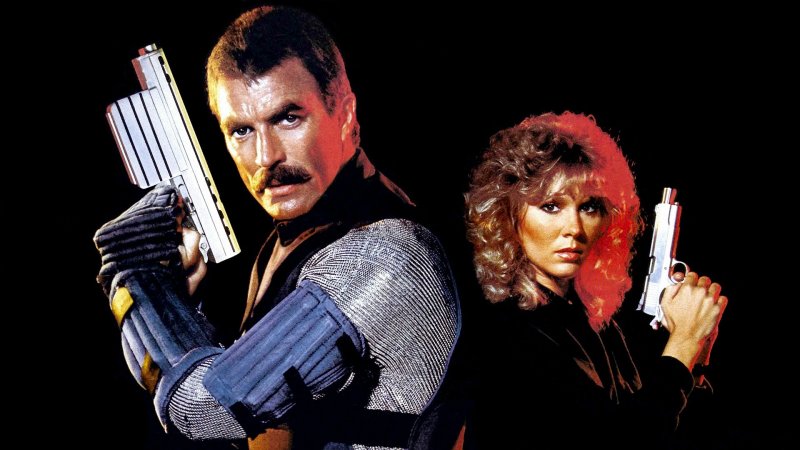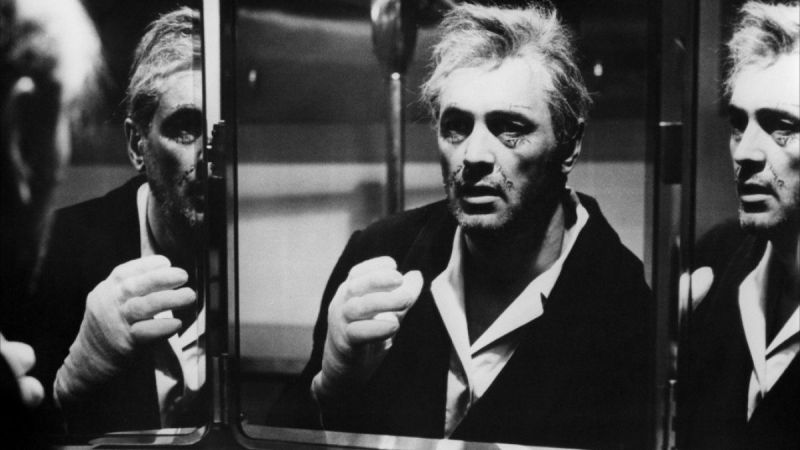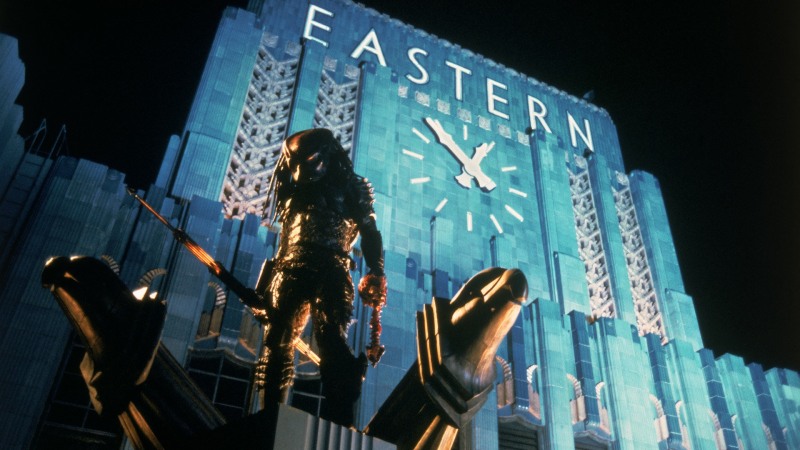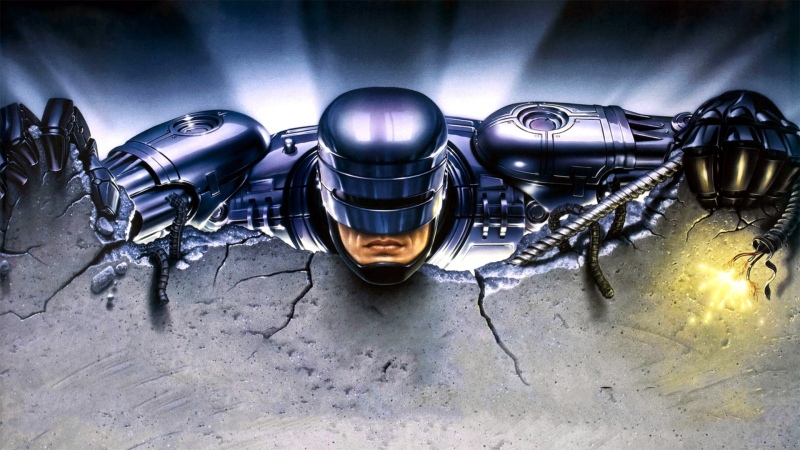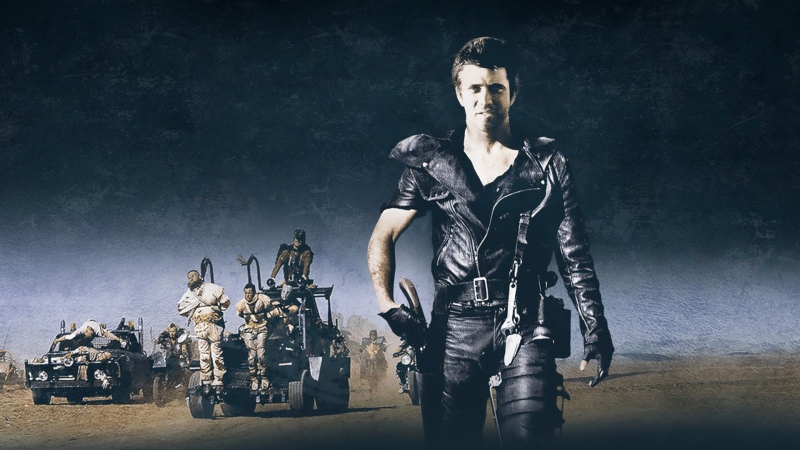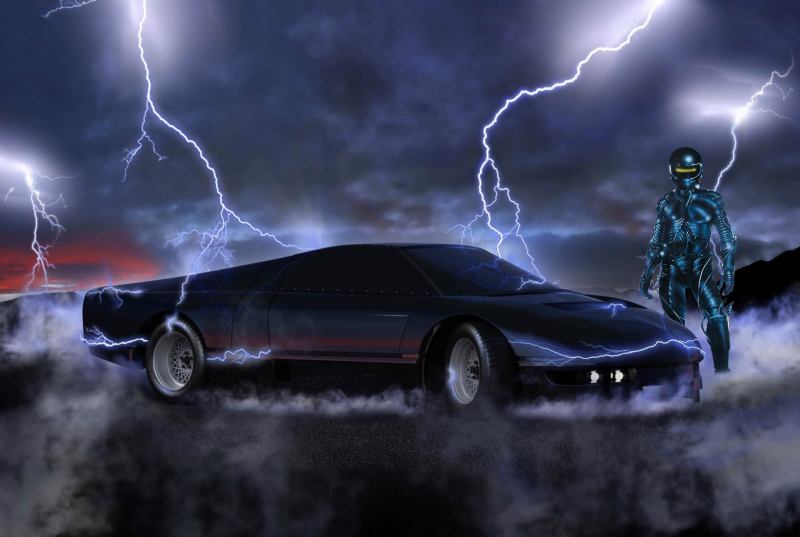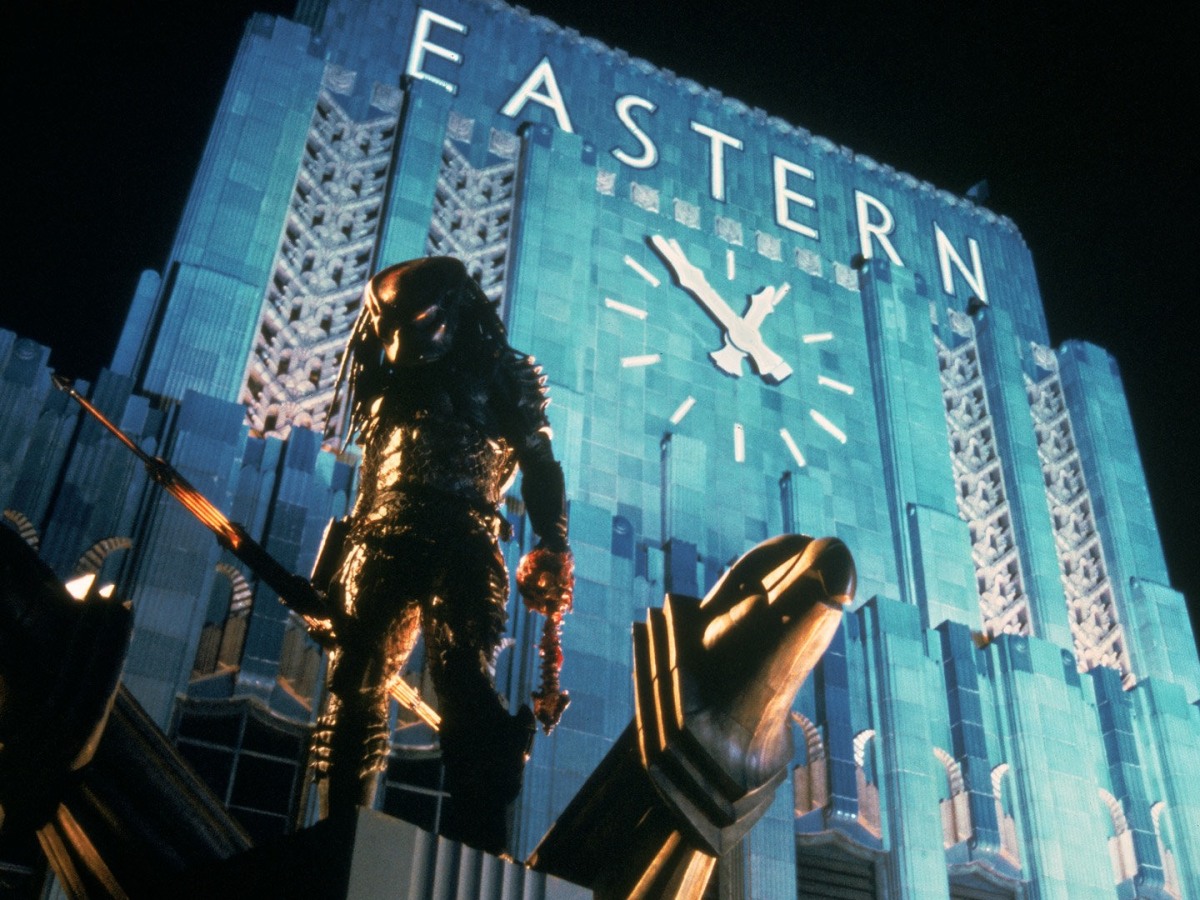VHS Revival charts the Mars-based multiplicities of Paul Verhoeven’s ultra-violent sci-fi thriller
Prior to joining forces with Joe Eszterhas to develop subversive, erotic thriller Basic Instinct in the early 90s, Paul Verhoeven would follow up his dystopian masterclass Robocop with a similarly subversive sci-fi extravaganza. In theory, Total Recall would be a big budget sci-fi action vehicle starring former Pumping Iron alumni and future Governor of California Arnold Schwarzenegger. In practice, however, Verhoeven would once again manage to create a blockbuster movie loaded with his own inimitable brand of humorous contempt, whilst also providing the sort of rollicking adventure yarn studio execs could happily support.
Loosely based on Philip K. Dick’s short story, We Can Remember It For You Wholesale, the film, scripted by genre legends Ronald Shusett and Dan O’Bannon (the creative team behind sci-fi horror classic Alien,) had been loitering in developmental limbo for some time. David Cronenberg was involved for a while and contributed to the screenplay before difficulties with Ron Shusett led to his departure. Dino De Laurentis, who had picked up the script in the mid 1980s, lost interest in the project, until Arnie, with backing from Carolco, swooped in as De Laurentis’ production company went bankrupt to nab the rights for a reasonable sum.
On the back of this, Arnie negotiated a decent payday for himself and was able to push for the hire of Paul Verhoeven to direct following the success of Robocop, a movie which Arnie was originally in the running to play. Verhoeven brought a lot of the team who worked on Robocop with him, while Gary Goldman was brought in to work with Shusett on the script. Despite having gone through a significant number of drafts during its ten years in limbo, the screenplay was still incomplete and required a final work through to get it up to spec.

The film opens in the year 2084 with lowly construction worker Doug Quaid (Arnold Schwarzenegger) having a nightmare about a mystery woman on Mars and waking in a cold sweat to be consoled by his wife (Sharon Stone). It is quickly established Doug is dreaming about Mars a lot. He wants to visit, but his wife is averse to the idea and continually talks him out of engaging in such a venture. Doug subsequently encounters a TV advert on a subway train from the company Rekall offering fake memory implants of Mars trips for a reasonable price. He surreptitiously attends Rekall, where he agrees to have fake memories implanted with an upgraded secret agent program thrown in for good measure, only to experience some sort of ‘schizoid embolism’ midway through the procedure.
You, you’re not you. You’re me.
Doug Quaid
It is at this point the film undergoes a perceptual divergence wherein the viewer suddenly becomes unsure as to whether Quaid is still in the chair experiencing an anomalous psychiatric seizure or is in fact engaging in the narrative we are subsequently presented with: that of a planet-hopping secret agent experiencing an identity crisis as a result of artificially suppressed memories accidentally resurfacing. The notion that Arnie is imagining himself as a cartoon action figure similar to those he played in Commando and Predator, whilst being strapped to a chair experiencing a sort of tech-induced delusion is more believable in many regards than the notion that he is a planet- saving secret agent on a mission to liberate the solar system.
However, at no point in the film is Quaid’s reality resolved. There are moments when the viewer is led to believe it has been resolved, but ultimately we can’t be sure if what we’re watching is real or the fantastical delusional conception of an overworked imagination. Mandatory (formerly Crave online) quoted the Verhoeven in 2016 as stating this about the film’s conflicting realities: “Total Recall doesn’t say whether it’s reality or it is a dream, you know? It’s really saying there’s this reality and there’s that reality, and both exist at the same time.”

Total Recall’s intelligence therefore lies not in its B-movie superimposition of two possible realities on top of one another, but rather in Verhoeven’s ability to harness the narrative uncertainty this creates to further his own thematic agenda. As in the case of both Robocop and Starship Troopers (1987), Verhoeven takes the source material and moulds it to match his own cynical worldview. In doing so, he clandestinely manipulates what is essentially a massive action blockbuster to function as a satirical commentary, not only on the cinematic superman blockbuster mentality of conservative 1980s action cinema, in which personality-free, white, indestructible, God-like beings set the world to rights via the prescription of American shaped values enforced via inconsequential violence, but also on America’s problematic political and sociological mindset and the validity of its delusional perception of itself.
Though Total Recall lacks the blunt force trauma approach to satire Verhoeven would employ for Robocop and Starship Troopers, there is no doubt the director’s sardonic eye is fully operational for the entirety of the movie’s running time. Fetishistic depictions of violence and gun porn abound, as do cynical illustrations of the media as biased peddlers of state-sanctioned misinformation. The film’s portrayal of a vacuous, consumerist society unconcerned by the plight of oppressed minorities fighting corporate intolerance and political subjugation mirrors the oppressive attitudes of the 1980s, during which the private sector’s appetite was insatiable and economic collusion between the state and the body corporate became increasingly apparent.
Ha ha ha ha ha ha ha…you think this is the real Quaid? It is! [shoots enemies]
Doug Quaid
Performances in the film, at first glance, seem overwrought, as with most of Verhoeven’s American output, but as with Showgirls and Starship Troopers after it, under further examination the casting seems a means to an end rather than the result of poor decision-making. Take, for example, Schwarzenegger himself. On first impressions, Arnie’s non-performance as psychologically conflicted everyman Doug Quaid seems ill-judged. Arnie is unconvincing as either an everyman or a secret agent. Had the role been offered to a more grounded actor—Richard Dreyfuss was originally under consideration back before Carolco’s involvement—the character might have been more believable.

However, as has already been noted, Verhoeven was able to use Arnie’s status as one of the biggest box office draws of the era to his advantage. By continuing with Arnie in the role of Doug Quaid, Verhoeven managed to shrewdly skewer America’s love of borderline fascistic action men, without resorting to the sort of cartoon theatrics John McTiernan would subsequently employ in the terrifically overlooked Last Action Hero released in 1993.
Support for Arnie in the shape of Sharon Stone’s deceptive housewife Lori, Rachel Ticotin as Martian mystery woman Melina, Michael Ironside as villainous henchman Richter, and Ronny Cox as Vilos Cohaagen, an even more ludicrous variation on the villainous corporate scoundrel he played in Robocop reinforcing this notion. Each of the supporting cast is a send-up of their respective genre stereotype, thereby adding weight to the argument that Quaid might possibly be trapped in a delusional netherworld imagining himself as the heroic protagonist. Had the film’s practical and visual effects not been up to scratch, Total Recall may have been a misfire. However, the film would win an Oscar for its special effects in the days before CGI took centre stage, through an ingenious combination of miniature work, matte paintings, CGI and the pulpy makeup and animatronics of effects legend Rob Bottin.
Similarly, production design, courtesy of William Sandell, and use of location shooting in Mexico City was exceptional. By adopting a Soylent Green attitude to world-building in that the future does not look so different from the present, with the usual slogans, slums and depressing architecture in situ, alongside stuttering advancements in consumer technologies, the Earth of Total Recall is recognizably brutalist. Mars, meanwhile, is impressively speculative, a treacherous frontier replete with blood-red smoky landscapes, mutated humans, alien technologies and science fiction space ships.
Len Wiseman’s insipid, shiny, completely humourless remake of Total Recall in 2012 would have all the cinematic impact of a wet flannel, and would quickly fade from memory alongside the Robocop remake that would arrive in 2014. Stripped of their satirical elements and knowing humour, the films barely made a ripple before sinking from view and disappearing off the radar with limited acknowledgement. Verhoeven’s films, however, have aged magnificently. Furthermore, with their unique blend of genre tropes, outrageousness and bleakly prescient satirical sniping, they are likely to continue to entertain and baffle viewers for many more decades to come.
Director: Paul Verhoeven
Screenplay: Ronald Shusett
Dan O’Bannon
Gary Goldman
Music: Jerry Goldsmith:
Cinematography: Jost Vacano
Editing: Frank J. Urioste &
Carlos Puente













